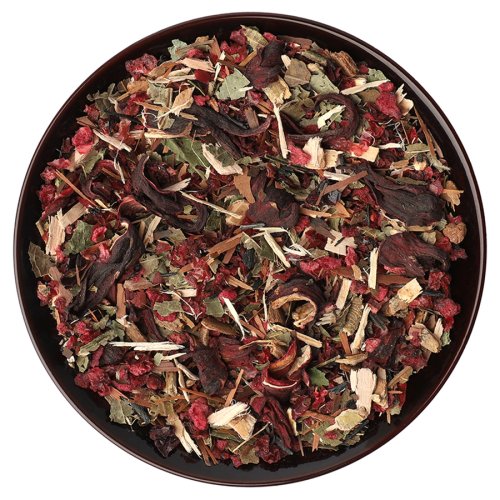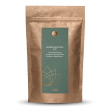Cranberries
The large-fruited cranberry (Vaccinium macrocarpon), more commonly known simply as the cranberry, is native mainly to North America and the eastern and northern parts of Europe, where it is used as both a traditional remedy and as a food. Cranberries contain a number of highly effective plant compounds that have strong antioxidant properties. In particular, they are rich in proanthocyanidins (PACs), which belong to the polyphenol family. Additionally, cranberries contain vitamins (vitamin C, beta-carotene, vitamin B6, folate, vitamin K), minerals (potassium, calcium, magnesium), and acids. PACs are considered the most important active components of cranberries and are responsible for many of the health benefits associated with the berries. PACs are well-researched, and their diverse antioxidant effects are currently the subject of scientific studies. PACs are water-soluble and are easily absorbed into the bloodstream through the intestines. PACs are later filtered out of the blood via the kidneys and then enter the bladder, where they are ultimately excreted through urine.
Hibiscus
The hibiscus plant is at home in tropical and subtropical climates. Hibiscus is a natural diuretic and contains a range of effective plant compounds such as citric acid, malic acid, tartaric acid, hibiscus acid, anthocyanins, terpenes, flavonoids, and phytosterols.
Lapacho
The lapacho tree (Tabebuia impetiginosa) grows in the Amazon and can reach up to 35m in height. This tea, which is made from the inner bark of the tree, has a long history in the rainforests of Middle and South America. Also known sometimes as the "tea of the Incas", it was popular among the Incas as a soothing tea, and they referred to the lapacho as the "tree of life". To this day, lapacho tea is served in hospitals in South America as a strengthening tea. The bark of the lapacho tree is rich in minerals and trace elements. Our premium lapacho tea contains valuable nutrients such as calcium, iron, potassium, and rare trace elements such as strontium, barium, iodine, and boron, which are often lacking in the average diet.
Sunrouge Green
Sunrouge is a special green tea hybrid of the C. taliensis and C. sinensis varieties that contains a high concentration of anthocyanins and catechins. Sunrouge green is made with a higher proportion of leaves from later harvests that have been allowed to ripen longer. In comparison to Sunrouge red, this green variant has not only many anthocyanins, but a higher concentration of catechins and methylated catechins.
Walnut Leaves
Not only the nut, but also the leaves of walnut tree have traditionally been used as natural remedies. The leaves are extremely rich in tannins that can comprise up to 10% of the leaf. Other plant compounds include flavonoids, phenolic acids, and colour substances such as juglone.
Willow Bark
Willow bark (Salicis cortex) contains a broad spectrum of various polyphenols of which glucoside salicin is the best known. Salicin is broken down into salicylic acid during digestion before taking effect. The bark also contains numerous other active phytochemicals such as procyanidins and flavonoids including isoquercetin, kaempferol, quercetin, hyperoside, apigenin, naringenin, and isoalipurposide. Willow bark provides a unique active complex that has secured this plant's place in the herbal traditions of many cultures.










